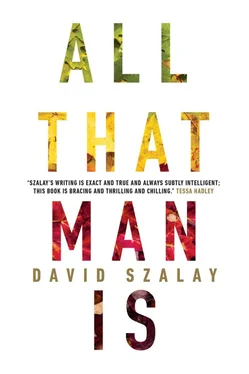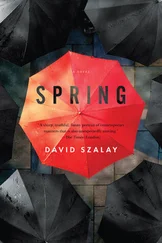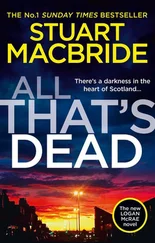Gábor, transparently surprised by the size of the offer, did not say anything. He swallowed cautiously and looked at Emma.
‘Okay? A thousand pounds?’
‘Uh,’ Gábor said, frowning as if trying to work something out. He seemed unable to do so, however, and finally said, ‘It’s up to her.’
‘Of course!’ The man turned smartly to Emma. She was sitting, with some dignity, in a tub chair. The man said, ‘A thousand pounds, madam, simply to sit in the corner. I’ll be as quiet as a mouse. What say you?’
Even the young Indian lifted his overlarge head, with its cockatooish plume of blow-dried hair, and looked at her now as they all waited to hear what she would answer.
‘Just say no,’ Gábor said to her, in their own language. ‘Just say no, and we’ll get rid of him.’
‘Why?’ she said finally. ‘What difference does it make?’
Gábor’s face underwent a very slight distortion.
‘What difference does it make?’ she said again.
‘You’ll do it then?’
She shrugged, and Gábor turned to the waiting Indian, who had not understood the exchange, and said, ‘Okay. Where’s the money?’
‘I, uh, I have it here.’ He took from the inside pocket of his jacket a tan leather wallet.
As he counted out the money, Gábor said, ‘You just watch.’
‘Of course, of course,’ the man said distractedly.
‘You don’t touch.’
A shake of the shining head. ‘No.’
‘Any trouble, we’ll be here.’
The man held out the money. ‘I promise you, there won’t be any trouble.’
‘Give the money to her,’ Gábor said.
‘Oh, excuse me. Madame?’
Emma stood up — even without her shoes she was taller than the dapper man — and took the money and put it in the small handbag which was on one of the tables next to the brocaded expanse of the bed.
‘Okay,’ Gábor said to Balázs, while she was doing that. ‘Let’s go.’
—
Gábor hardly spoke for the rest of the night, his face swallowed by shadow in the parked Merc. He had speculated bitterly, as they walked back, on the nature of the Indian’s perversion, but once they had taken their seats on the anthracite leather, he seemed to have nothing more to say.
The previous night had also challenged his composure, though not nearly to the same extent. Zoli had told them, when he came as usual to collect his money, that the client for that night did not want to go to the hotel, so they should go instead to his house. It turned out to be in a grand square of stucco terraces. The two men had watched through the windscreen as Emma, in the familiar little flesh-coloured sheath of a dress, went up the steps to the porticoed entrance, with its big hanging lantern, and pushed the doorbell. A minute later the house swallowed her.
‘Whatever,’ Gábor said.
The house spat her out at four in the morning, just as the birds were starting to sing in the railinged gardens.
She was drunk. As they drove through the empty streets, she apologised for hiccupping, and then, when she couldn’t stop, seemed to get the giggles.
‘You’re in a good mood,’ Gábor said, fixing her momentarily in the rear-view mirror. ‘D’you have fun then?’
‘Don’t be stupid,’ she said softly.
‘You’re drunk.’
‘Yes, I’m drunk. I’ve had about two bottles of champagne.’
‘Champagne?’ Gábor said. ‘Nice.’
She ignored the sarcasm. ‘Not really.’
‘No? Did he make you drink it?’
She turned to the window, to the blue streets, dawn seeping into them. Monday morning. ‘It helps,’ she said.
—
Tuesday night, the one after the incident with the Indians, is her night off. When she appears as usual at four p.m., Gábor says that Zoli has invited them out. He seems surprised and hurt when she tells him she is tired and wants to stay in. Later he tries again to persuade her — Balázs hears this through the wall — and when he meets with no success, emerges himself in a sharply pressed indigo shirt and extends the invitation half-heartedly to Balázs, who says that he, too, is tired and wants to stay in. Without making any effort to persuade him , Gábor phones Zoli and apologetically passes on the news that Emma won’t be joining them.
‘Nah,’ he says, standing in the middle of the living room with his phone to his ear, ‘nah, she wants to stay in. She says she wants to stay in.’ Zoli says something. ‘I did tell her that,’ Gábor says. Zoli makes some other point, and Gábor says, with feeling, ‘I know, I know.’ Finally Zoli desists and Gábor mixes a JD and Coke in the pine kitchenette, and having hurriedly swallowed it, heads out into the evening.
When the slam of the door has dissipated, a very pure silence settles on the small flat.
Balázs, pretending to read Harry Potter és a Titkok Kamrája , listens hard for any sound, any sign of life from the other room.
After about twenty minutes he hears what sounds like the squeak of a bedspring.
Some time after that — quite a long time, during which his hopeful theory that she turned down the night out specifically so that she would find herself alone in the flat with him is severely tested by the uninterrupted silence — he puts down the novel, with which he is making little progress and, passing quietly through the hall, goes out to get himself some supper.
Her light was on when he left — he saw it under the door.
When he gets back he sees, with a squeeze of disappointment, that it is off. He should have tapped on her door before he went out and asked if she wanted anything. That would have been the obvious thing to do. Now it is too late. Without enthusiasm, he eats his food and, when he has finished, lights the first of a long sequence of Park Lanes.
When he finally falls asleep, it is after two o’clock and the ashtray on the floor next to the sofa is full.
‘Is there any coffee?’ she asks, hearing him stir.
She is in the kitchenette, in her dressing gown, opening pine cupboards.
‘No,’ he says, squinting. The room is full of clean sunlight. ‘I don’t think so.’
‘I only drink coffee in the morning,’ she explains. It is ten o’clock in the morning, a time when they are normally asleep.
Naked in his sleeping bag but for a pair of black nylon briefs, Balázs does not move from where he is. ‘Did…Did Gábor get back?’ he asks.
‘He’s sleeping,’ she says.
She has stopped searching the cupboards and is just staring at the kitchenette.
‘Where can I get some coffee?’ she wonders.
And as if it were the simplest thing in the world, he makes his suggestion.
‘If you like,’ he says, ‘I know a place.’
She looks at him, sitting there, up to his waist in the sleeping bag, his tattooed biceps and toaster-like pecs, his small pale eyes obscurely imploring.
—
They are in the habit of speaking to each other now, up to a point. Still, it feels extremely intimate to pass through the downstairs hall together, to leave the house, and walk down the street.
Balázs knows the way to the high street well by now and has seen some coffee places there, some with a few metal tables outside on the narrow, stained pavement. They sit on aluminium chairs, under a restless awning. He is wearing his sunglasses, the soldierly plastic wraparounds with their iridescent wing-shaped lenses, and his orange T-shirt is tucked into his jeans. He sucks at the lid of his coffee cup and looks at the sunny, trading street. ‘Nice day,’ he says.
Also wearing sunglasses, she just smiles, not unsympathetically.
‘Did you sleep okay?’ he asks.
She says she did.
As if aware of some possible impropriety in the situation, she is, it seems, pointedly unforthcoming.
Читать дальше












